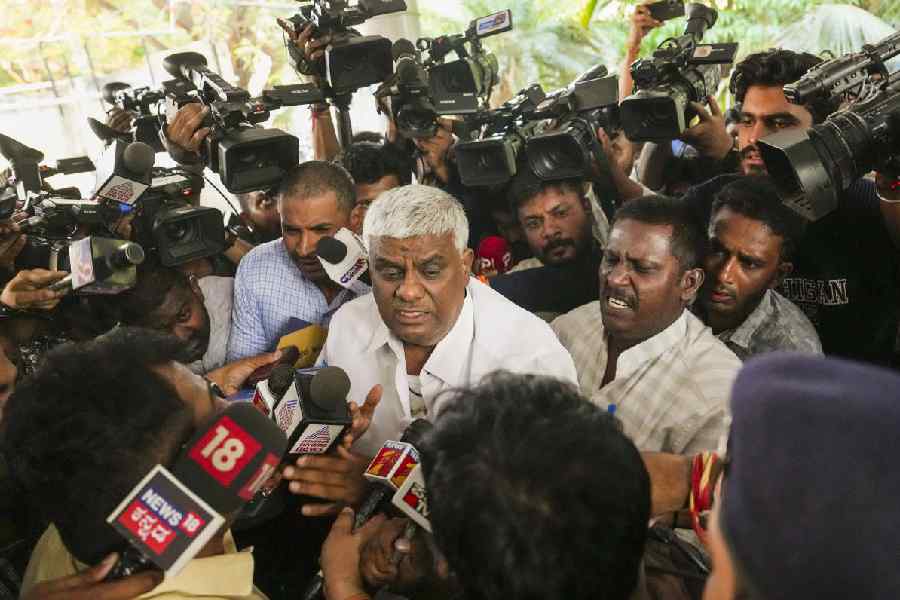Dwitiya Sattwa’s quirkily titled Na Tor Jonno is as good a surprise package as there is. Brilliantly penned by Suman Sengupta (who also dons the hats of director, actor, music and set designer), Na Tor Jonno is richly laden with echoes of a range of written texts, including Orwell’s 1984, Tagore’s Raktakarabi and Shakespeare’s Macbeth on the one hand and televised digital texts such as Squid Games and Black Mirror on the other. It is an incisive critique of the production of systems of mind control to create a consumerist world order in which statist control of nations is replaced by the rule of global business corporations. The evocation of a dystopia, some elements of which are already part of our lived experience, is achieved through persuasive power so that the fantastic bits seem disturbingly real.
Viewed critically at the level of production, the play does throw up scattered areas of weaknesses: Roudrasish Hota as Anjan occasionally slips out of character, the ending — with its twists and turns — is protracted, the Domainia anthem does not quite work. But such is the overall performative strength of the play that these minor glitches are easily overlooked. The set, suggesting an urban skyline with phallic skyscrapers symbolising overreaching aspirations and power, is minimal yet supremely effective. The soundscape, enlivened by Senjuti Gupta’s magical vocals, underscores thematic concerns.
The coordination among the five actors playing the various shades of ‘shey’ is crisp and precise. With the post-interval introduction of three wizened, old, witch-like women (Sanjita, Piyali and Meenakshi), the narrative takes an interesting turn, infusing a whole new dynamic into the plot that the three actors project with great élan. Amrita Mukherjee is rock solid in her two avatars, masterfully differentiating between the two personas. The show stealer, however, is Suman Sengupta, who combines
his formidable experience and enviable histrionic abilities with unflagging energy to etch out his two characters. It is unfair and unfortunate that Bengali theatre gets to watch him so infrequently.










